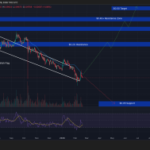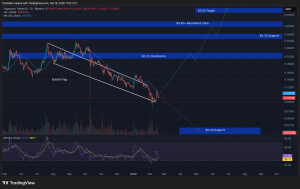Wall Street looked at the news coming out of Washington, D.C., and pushed the panic button Wednesday. In the first day of trading after The New York Times reported that President Donald Trump had told former FBI Director James Comey to stop an investigation into disgraced former national security adviser Michael Flynn, stocks slid the most since Election Day. The Standard & Poor’s 500 index closed down 1.8 percent. The Dow Jones Industrial Average, an index that tracks a smaller group of companies, dropped 371 points or 1.77 percent. Bank stocks, which have surged since Trump’s election, were down 3.5 percent. The prices of bonds and gold went up, as usually happens when other assets are volatile. Before Wednesday’s slide, stocks were up 15 percent since Election Day, despite ho-hum jobs reports and growth numbers. Investors seemed to be betting that everything that could be good for stocks – slashed tax rates for capital income and the wealthy; a huge infrastructure spending bill; bank regulations being gutted; a one-time tax holiday on overseas cash that companies could plow into huge dividends and share buybacks – would happen. But an infrastructure spending bill and a massive tax reform package always seemed like long shots, and only look even more unlikely given the current turmoil in Washington. The other assumption investors seemed to be making was that things that are bad for stocks – restrictive immigration policies; trade wars; a foreign policy crisis; a constitutional crisis – wouldn’t happen. But the chances of the last scenario becoming a reality rose dramatically Tuesday night with the report that Trump appeared to try to obstruct the FBI’s investigation into Flynn by telling Comey to drop the investigation before eventually firing him. As stocks fell Wednesday afternoon, Bloomberg’s Joe Weisenthal tweeted: “Investors lose faith in Trump agenda after stocks go down.” That may sound like a joke, and it is funny, but Weisenthal was serious and he makes a perceptive point about the basis of the Trump Rally: On Wall Street, the question of whether something is “good” or “bad” hinges entirely on how it affects stocks.














